#the punic wars
Explore tagged Tumblr posts
Text

#I don’t remember this in any of Polybius or Appian’s or Livy’s histories#the punic wars#carthago delenda est#carthage#hannibal#pooh bear#polybius#appian#livy#rome#roman#spqr
218 notes
·
View notes
Photo
No joke, this is a great way to get students to retain info, nowadays. Meme-ify historical data, make it funny, and the relevant info's much more likely to stick.
School boards keep trying to go for the latest "hip" trends in conveyance, but nothing could ever top deliberately absurd infographics.
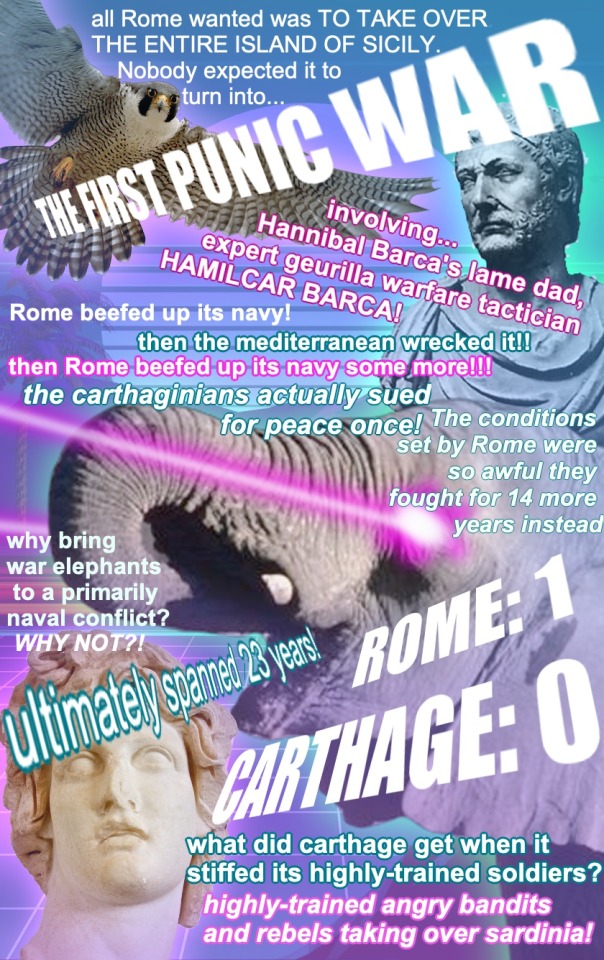
#The Punic Wars#The irony of it being that my first exposure to it was through V:TM#fast-forward a few years later and I'm left going “Oh shit yeah that was real!”
11K notes
·
View notes
Text

this came to me in a dream
630 notes
·
View notes
Text
Hannibal Lectern
#hannibal#like whichever one#make it the A team Hannibal if you want#the a team#hannibal barca#Carthage#the Punic wars#hannibal lecter
1 note
·
View note
Text
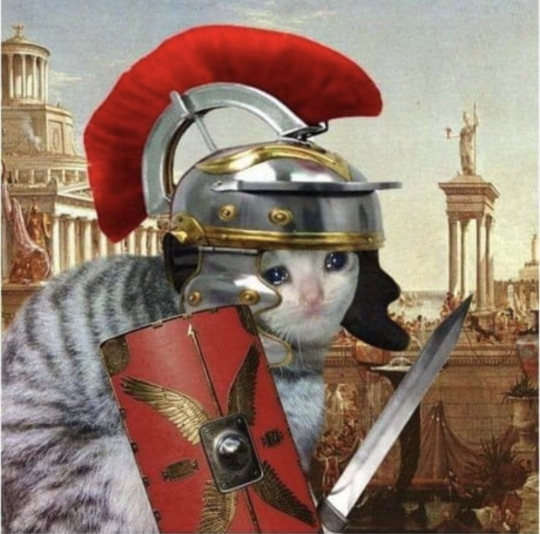
The Sad Fate of Roman War Veterans and How the Punic Wars Destroyed the Roman Middle Class
There's no question that Rome's victory over Carthage during the Punic Wars drastically changed the Roman Republic. Perhaps the most apparent change was Rome's ascendancy from a smaller power in Italy to the dominant power in the Mediterranean. In other words, a big fish in a small pond, to a big fish in a literal big pond. In the span of 120 years Roman territory expanded by vast amounts followed by further Roman expansionism resulting in Roman territory stretching from Spain and North Africa in the west to Greece and Anatolia in the east.


While the Punic Wars would transform Rome into an (e)mpire militarily, it also transformed Roman socio-economic structures. The early Roman Republic had no standing professional armies. Instead to wage war Rome used a militia system with citizen soldiers who were called up as needed. Since the state had no role in equipping soldiers, it was up to soldiers to equip themselves. Roman lower classes were exempt from military service since they could not afford weapons, armor, or supplies while the Roman upper class served as officers or elite cavalrymen. Thus, the responsibility for providing the rank and file infantry of the army fell to the Roman middle class. The Roman middle class consisted of some skilled artisans and small business owners, but by far most of the Roman middle class were farmers who owned small plots of land.
Up until the Punic Wars, this system worked fine as war was a small, short, local event that occurred within the confines of central and southern Italy. A Roman soldier didn't have far to travel from home as the enemy was within easy marching distance away. War was also a seasonal affair where the fighting occurred on the off season, then a truce was called so that soldiers could tend their farms during the growing season, with the war resuming once the crops were harvested. Now Roman soldiers were expected to be shipped to far off places such as Africa, Spain, Greece, Macedonia, and Anatolia. Whereas before wars were short seasonal affairs, now wars seemed to last forever with no recesses so that soldiers can tend their farms. Both the first and second Punic Wars nearly lasted two decades each. And war was everywhere as the Punic Wars involved multiple fronts all over the Mediterranean. No longer were Roman wars short, small, localized affairs. In the meantime while soldiers were away fighting, their fields were fallow and their businesses had fallen into disrepair. The Republic tried to mitigate the financial strains of the Punic Wars on its soldiers by paying a stipend. However it was not enough to prevent financial disaster. When the war ended and Rome's veterans returned home in triumph, they were broke and impoverished.
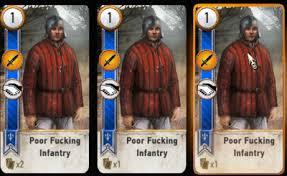
In order to make ends meet or pay off debt, most had to sell off their land to wealthy landholders, who consolidated that land into large estates and plantations. Many who sold their land became tenant farmers on the land that they had previously owned. Others moved to the city and tried to eek out a living as a laborer, however the price of labor was plummeting as Rome had taken tens of thousands of slaves during the Punic Wars and were taking tens of thousands more in various wars across the Mediterranean. War veterans found that there was no place for them in Roman society. Their farms and businesses were gone, and there was no need for their labor due to the sudden influx of slaves. Wealthy Roman elites had taken control of most of the Republic's land and wealth while a large percentage of the middle class were booted into poverty.
The result of everything I have previously described was a massive and ever growing rift between the rich and the poor as wealth became more and more concentrated at the top. This event became a hot button issue in Roman politics with Roman government being dominated between two unofficial political parties; the optimates, or those who supported the interests of the Roman elite, and the populares, or those who supported the interests of the common Roman. The clash between the optimates and populares led to increasing political instability resulting in the rise of demagogues and dictators. Civil war became common, and eventually the Roman Republic fell, giving rise to the Roman Empire.
youtube
206 notes
·
View notes
Text
”the victor has not achieved victory unless the vanquished considers himself so”
I love that part of the reason the Roman Empire lasted so long is because they straight up didn't know when they were beaten. Frequently suffered losses that would've ended anyone else but they just kinda ignored it
Their history is just this


#the Punic wars#good god#they lost their entire navy three times#like the whole thing#and just said#oh yeah no problem we’ll just build another one#three times#and then they won
34 notes
·
View notes
Text

Hannibal Crossing the Alps by Francisco Goya
#hannibal barca#hannibal#alps#italy#art#francisco goya#antiquity#carthaginian#carthaginians#carthage#punic wars#second punic war#rome#ancient rome#ancient carthage#roman#romans#history#europe#european#mediterranean#cisalpine gaul#roman republic
135 notes
·
View notes
Text

Title: Hannibal Crossing the Alps on an Elephant Artist: perhaps Nicolas Poussin (French, 1594-1665); attribution disputed Date: ca. 1625-26 Genre: historical painting Period: French Baroque Movement: Classicism Medium: oil on canvas Dimensions: 100 cm (39.3 in) high x 133 cm (52.3 in) wide Location: private collection
#art#art history#Nicolas Poussin#historical painting#ancient history#Punic Wars#Hannibal Barca#Baroque#Baroque art#French Baroque#Classicism#French art#17th century art#oil on canvas#private collection
49 notes
·
View notes
Text
cisterns this, cisterns that, what about transterns?
#listening to fall of civ pod tell me about carthage#and how their cisterns helped them survive a seige for a long time in the....3rd? Punic war? One of the punic wars#m
73 notes
·
View notes
Photo
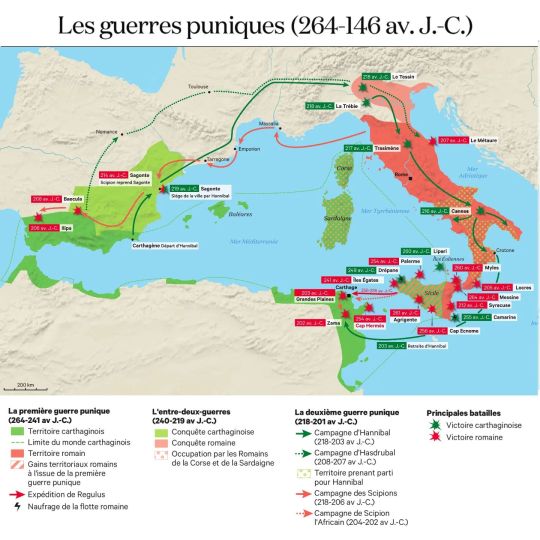
The Punic Wars, 264-146 BC
« Atlas historique mondial », Les Arènes, 2019
by cartesdhistoire
Rome and Carthage stood as the dominant powers in the western Mediterranean. Between these two influential states lay the island of Sicily. Situated at the crossroads of Europe and Africa, and bridging the eastern and western Mediterranean basins, Sicily held immense strategic importance. Rich in wheat and boasting a heritage of prosperity bestowed by both the Carthaginians in the west (in Palermo) and the Greeks in the east (in Syracuse), the island flourished. The Carthaginians established their capital at Lilybaea (modern-day Marsala) and maintained a major naval base at Drepane (modern-day Trapani).
In 264 BC, the onset of the First Punic War marked the first engagement of Roman legionnaires outside of Italy. While battles were fought in open fields, guerrilla warfare, and sieges, the defining feature of this conflict lay at sea. The pivotal Battle of the Aegate Islands in 241 BC resulted in the defeat of the Carthaginians, triggering another conflict, the far more perilous Mercenary War, on African soil. Fueled by grievances over unpaid wages, mercenaries and local allies revolted against Carthage, plunging the region into turmoil until order was restored by Hamilcar in 238 BC. A peace treaty with Rome was signed on March 10th.
The Second Punic War, commencing in 218 BC, was marked by an intriguing characteristic: personalization. The conflict became synonymous with the personalities of Scipio, later known as "the first African," and Hannibal, one of history's greatest military commanders. Hannibal's audacious invasion of Italy, driven by a desire to avenge Carthage's honor, catalyzed the war's escalation.
The war culminated in the Battle of Zama in 202 BC, leading to the signing of a final treaty in 201 BC. From this point forward, Rome emerged unchallenged in the Mediterranean. However, it wasn't until 197 BC that the Senate formally established the two provinces of Spain.
76 notes
·
View notes
Text

Ancient Warship’s Bronze Battering Ram Sunk During a Battle Between Rome and Carthage Found
Found near the Aegadian Islands, just west of Sicily, the bronze rostrum played a role in the last battle of the First Punic War, which ended in 241 B.C.E.
In 241 B.C.E., two empires faced off in a naval clash off the coast of Sicily. By then, Rome and Carthage had been fighting for more than two decades. Rome’s victory in the skirmish, officially called the Battle of the Aegates, brought an end to the First Punic War, the initial conflict in a series of wars between the two ancient powers.
Now, explorers have recovered a piece of that final battle: the bronze battering ram of an ancient warship. According to a statement from Sicily’s Superintendence of the Sea, the ram was found on the seafloor off the western coast of the Mediterranean island, at a depth of around 260 feet. To retrieve the artifact, the team used deep-water submarines from the Society for Documentation of Submerged Sites (SDSS) and the oceanographic research vessel Hercules.
The seabed off the Aegadian Islands “is always a valuable source of information to add further knowledge about the naval battle between the Roman and Carthaginian fleets,” Regional Councilor for Cultural Heritage Francesco Paolo Scarpinato tells Finestre sull’Arte. He adds that the find is yet another confirmation of the work of the late archaeologist Sebastiano Tusa, who spearheaded exploration of the seabed as the site of the 241 battle after a separate ram, also known as a rostrum, was first found there in the early 2000s. In the two decades since, researchers have recovered at least 25 rams from the seabed.
At the time of the Battle of the Aegates, Rome and Carthage had been at war for 23 years, fighting for dominance in the Mediterranean. As the Greek historian Polybius later wrote, the Romans sank 50 Carthaginian ships and captured another 70 along with their crews, taking nearly 10,000 sailors prisoner during the naval battle. Rome forced Carthage to surrender. But the fragile peace was short-lived: Over the next century, Rome would go on to fight a second and third war against the Punic people, winning each time.
“It was very costly, both in terms of human life and economically,” Francesca Oliveri, an archaeologist at the superintendence, told BBC News’ Alessia Franco and David Robson in 2022. “In the last phase, Rome even had to ask for a loan from the most well-to-do families to arm the fleet and build new boats.”




The recently discovered ram has been brought to Favignana, one of the Aegadian Islands, for further study. Though its features are difficult to make out because the object is covered in marine life, researchers have been able to discern a decoration on its front: a relief depicting a Montefortino-style Roman helmet decorated with three feathers.
The battering ram adds to the wealth of war relics found on the seabed, which also include 30 Roman soldiers’ Montefortino helmets, two swords, coins and many clay amphorae (large storage jars).
According to the SDSS, rams were the most important naval weapons of their time. They were placed on the bows of warships at water level so that sailors could crash their boats into enemy vessels, damaging and sinking them. The plethora of rams scattered on the seabed are testaments to the weapons’ effectiveness in ancient battle.
“We are finding so many things that help to illustrate a little better the world of the third century [B.C.E.],” Oliveri told BBC News in 2022. “It’s the first site of a naval battle, in the world, that has been scientifically documented like this, and it will continue to be documented—because the area of interest is very large. … It will take at least another 20 years to explore it fully.”
By Sonja Anderson.


#Ancient Warship’s Bronze Battering Ram Sunk During a Battle Between Rome and Carthage Found#roman rostrum#bronze#bronze rostrum#bronze battering ram#Battle of the Aegates#First Punic War#ancient artifacts#archeology#archeolgst#history#history news#ancient history#ancient culture#ancient civilizations#roman history#roman empire
28 notes
·
View notes
Text

The Evolution of Scipio and Hannibal Two of the most fascinating characters in antiquity. Their rivalry and eventual respect is the stuff of legend, so I just had to draw them.
#ancient greece#ancient rome#ancient history#ancient africa#antiquity#ancient art#hannibal barca#scipio africanus#punic wars#carthage#art#illustration#history#second punic war#portrait#carthago delenda est#roman empire#rome#roman republic#roman history
59 notes
·
View notes
Text

A bronze Roman battering ram (weight of 204kg) This used to be attached to the bows of Roman warships and smashed the enemy ships of Carthage at the Battle of Aegates off the coast of Sicily on 10 March 241 BC.
100 notes
·
View notes
Text
History memes #28
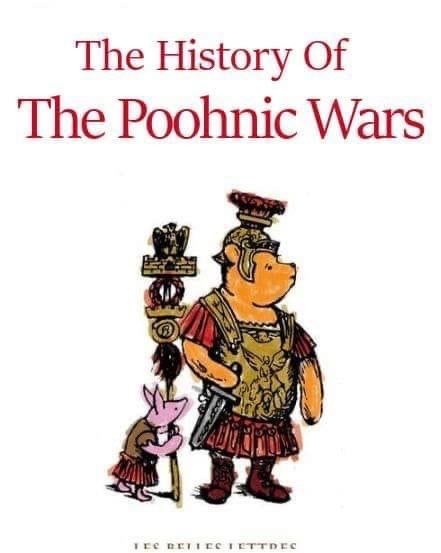
#funny humor#funny memes#history memes#funny#history#humor#meme humor#roman empire#ancient rome#punic wars#bad puns#puns#terrible puns#winnie the pooh
56 notes
·
View notes
Text
The power of Autism: waiting 4 years to take a 1 semester course so you can listen to a 2 day lecture you know more than the speaker about
#and it was worth it#dont worry im a high school student so it was free#but i am STARVED of content on my special interest#why does nobody want to talk about the punic wars????#punic wars#hannibal barca#autism#actually autistic#autistic things
15 notes
·
View notes
Text
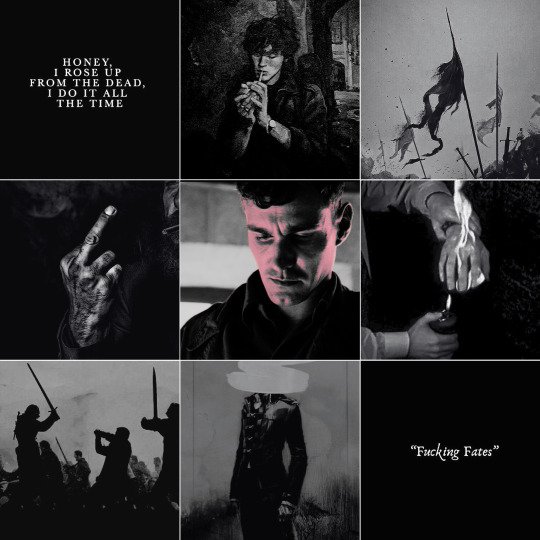
for some reason i can't explain i know saint peter won't call my name
nothing that lives, lives forever - an immortal soldier!alton more au

(1.1k of snippets from my old guard(ish) au where alton more is old, too old, and has been living and fighting far longer than anyone should. full description/other thoughts at the bottom. tw: blood, violence, mentions of death)
Alton clicked the lighter closed, running a thumb over the silver case. The night was warm, sticky in a way that he never could get used to. He sucked in a breath from the cheap cigarette, letting his head fall back against the rough side of the barracks.
It was quiet. Typically, there would be no end to the commotion coming from the small building, one of many that littered Camp Toccoa. The wall of sound was ever-present, no matter if it was shouting or laughing or snoring. But whatever the cause, there was always noise.
No matter if it was a blanket of noise he knew well, unchanging except for the language and the scenery. Soldiers are soldiers, and some things are a constant. It could almost be comforting, if it didn’t also mean that the need for soldiers was a constant as well.
However, tonight was a Saturday, and it was one of the few weekends that Sobel had allowed Easy the use of their weekend passes. Almost every man in the company had jumped at the chance to get off base, to travel home if they could and spend time with loved ones. The ones with farther-flung hometowns had spirited off to Atlanta, happy to spend their time drinking and dancing and fucking instead of slogging through another run, three miles up, three miles down.
Normally, Alton would have joined them in their carousing - it was easier to pass the time with the effortless camaraderie built during a training camp than bored and alone.
But today had been a bad day. The sound of swords and the shift of sand beneath his feet followed him out of his nightmares, the humid summer of Georgia morphing itself into the baking, dry heat of the desert.
His shouts must have been real, because when a hand came to shake him out of his dream, the first face he saw was not that of a grouchy NCO, but of a blood-caked Saracen, eyes alight with righteous fury.
Alton didn’t think. He had grabbed the knife from under his pillow, an old thing that had been sharpened more times than he could begin to count, and was on the man in less than a breath, pressing the blade into the side of his neck. The familiar thrum of blood beat against his fingertips, the grit of sand scratched his gums. He knew what he had to do, had done it a thousand times, a thousand thousand times, what was a little more bloodshed spilled across his feet-
Alton had blinked, and came to himself in a rush.
Instead of an unnamed Saracen, the ashen face of Johnny Martin stared up at him, eyes wide behind the knife.
Alton drew back his hand, retreating almost as quick as he had lunged earlier. He mumbled a quick curse and apology as he stepped out of arm’s reach from the man. It wasn’t until Martin’s eyes widened even farther that Alton realized his tongue was slipping out Arabic of all things.
Usually, Alton was better about remembering himself, who he was almost as important as where he was. But for whatever reason, his demons had decided to catch up with him that night.
After a quick smile and some quip about the Krauts in his dreams, he managed to wave an only-slightly-mollified Martin off. The shorter man apparently hadn’t forgotten it though, if his watchful eyes during chow that morning were anything to go by.
Alton was just glad that no one else was awake to see it, at least. That was the last thing he needed.
And so, instead of joining in on a weekend of broads and booze, Alton found himself waving away the invitation by an eager Smokey and bemused Alley. When the horde made their way out of the barracks, fantasizing in bawdy terms about their planned misadventures, he felt like he could breathe easy.
Fucking finally.
~~
Alton took another drag from the cigarette. He watched the smoke curl, up and up until it faded into nothing amongst the darkening sky.
The lighter was a welcome weight in his hand, grounding him to this time, this life.
The design was worn by now, details barely visible after a half century of worrying. It still managed to amaze him, sometimes, what people could do with the smallest of canvases. Alton didn’t feel the same wonder however, wasn’t as mesmerized by the beauty man could create as he once was.
But in the quiet moments, he could still appreciate the time some French craftsman took to transform a hunk of metal into a small token carried around by a dead man.
Luz had spied the lighter one weekend, and laughed at him for using something so old-fashioned. Alton just shrugged, not caring to admit that he was still getting used to having a light at his fingertips. It wasn’t all that long ago when he was still lighting a pipe with a flintlock pistol, and not so long before that when he would carry around a flint and steel.
Time was passing all the more quickly these days, technologies changing and advancing, and everyone was obsessed with needing things to be quicker, cheaper, simpler. Alton scoffed. He could hardly find it in him to care.
He glanced down at the lighter in his hand, shifting it back and forth in a practiced motion and watched as the light skittered across the sides.
It had shown flowers, once. A veritable garden of carnations, daffodils, and lilies of the valley, with leaves spilling across the front panel onto the back. They represent good fortune, he was told. Good fortune, luck, and hope.
When the merchant described it to him, eyes ablaze with a passion known only to those with wares to sell, Alton didn’t try to hide the snort that escaped his throat.
Fortune and Luck had abandoned him long ago, and hadn’t returned since waking up in a battlefield abandoned by all but the dead, sword in his chest and blood in his mouth.
And what the fuck was Alton supposed to do with hope?
It was the quote on the back that had caught his eye, all those years ago in a street market in Reims. The beveled edges had faded with time, the familiar letters Alton traced were more memory by now than any physical mark. Une vie honorable est une vie éternelle.
An honorable life is an eternal life.
Alton couldn’t help but stare at the message, both then and now. He hated that goddamn word. Immortal. Unending. Eternal.
They were such flowery words, used by people who craved what they couldn’t have, what they shouldn’t. The romanticized idea of the everlasting, the fountain of youth, the gift of life! Alton was sick of it.
This wasn’t life. He was a fucking dead man walking. And he sure as hell didn’t do anything honorable to deserve it.

months ago, while thinking about the absolute insanity of the almost...cavalier? attitude we see alton more have over the course of the series, an idea hit my brain: what if there was a reason nothing seemed to phase him - not panzers, not being a breath away from a car wreck, not bastogne, not speirs? what if this wasn't his first war? that thought spiraled me into a minor insanity that is this: my immortal soldier!alton more au, loosely inspired by the movie the old guard (2020). the idea is that, once upon a time, there was a soldier in a land many centuries ago. one day, he died in battle. and then, he woke up. and then he died. and then he woke up. over, and over. drawn to countless battles, conflicts, and wars, each one etching itself into the core of his soul. a never-ending cycle...until one sweltering summer, where he found himself at a training camp at the foot of a mountain. anyways. at some point, i plan on writing this as a full story, but that is admittedly a long ways away. however, in celebration of alton more's birthday today, i wanted to post my favorite scene that i've written for this au! it's set sometime at the beginning of the story, in the early days of camp toccoa. mostly, it's just a character study of this version of alton more. hope you enjoyed! and of course - happy birthday alton more!
(song insp.)
taglist: @sweetxvanixlla @coco-bean-1218 @bucky32557038ww2 @georgieluz @samwinchesterslostshoe @xxluckystrike @next-autopsy @ronald-speirs @land-sh @ronsparky @panzershrike-pretz @theredrenard @kyellin
#happy alton more day!#holy shit im actually posting this...i've been sitting on it for MONTHS#but YEAH its just...the gothic romanticism about the physical embodiment of war and soldiers and the concept of death you know??#what it means to feel and to live and to connect to those around you when it all feels so fleeting#fleeting not just due to the nature of war but also the nature of immortality#or something#...look i have a lot of thoughts about this story okay#it kills me#its also known in my brain as the “how immortal soldier!alton more made friends” story#because literally thats it thats the plot#OH WAIT did i forget to mention that speirs is also an immortal soldier in this story??#oh yeah thats the best fucking bit - they met like centuries and centuries ago on the wrong ends of one of the various punic wars#(where speirs was known back then as...wait for it...TERTIUS)#its good goddamn shit okay#also explains why alton is so fucking unflinching towards speirs at any given point and why they were so petty about the photo albums#ANYWAYS if anyone wants to hear more about this!! come stop on by!!!#also yes the title is a reference to the old guard#as is the reference to the siege of jerusalem which is where joe and nicky met#immortal soldier!alton more#alton more#nothing that lives lives forever#easy company#band of brothers fic#mine#band of brothers#bofb#hbowar#em's moodboards#em writes#jesus christ i guess that's a tag now
30 notes
·
View notes